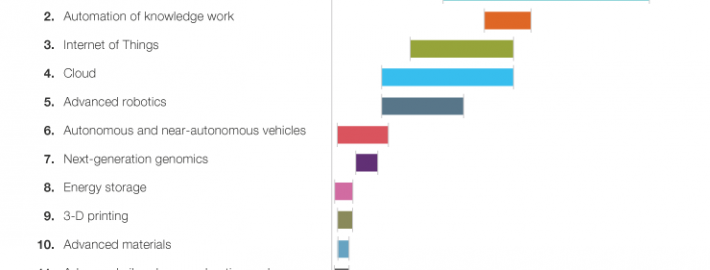[vc_row][vc_column width=”1/1″][vc_column_text]
McKinsey Global Institute publishes study on innovations that will transform life, business, and the global economy
We are in an ever changing parade of new innovations on numerous fronts. Just about every development in technology is charged as a leap forward, and we are constantly looking for the “next big thing”. However, not every upcoming innovation will truly be able to influence the business or social landscape, but some of them might be disruptive for existing conditions and change the way we live and work. As such it is important as a business leader to comprehend which technologies will matter to them and how to prepare for changes.[/vc_column_text][vc_separator][/vc_column][/vc_row][vc_row][vc_column width=”1/1″][vc_column_text]
Disruptive technologies: Advances that will transform life, business, and the global economy. (McKinsey Global Institute)
[/vc_column_text][/vc_column][/vc_row][vc_row][vc_column width=”1/1″][vc_column_text] Read more



